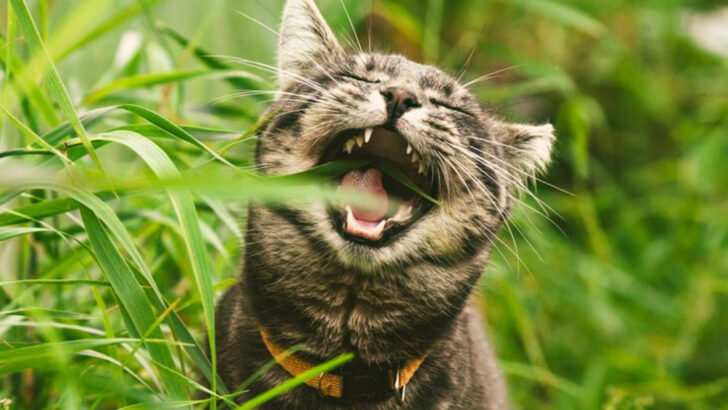Ever caught your feline companion munching on your garden grass and wondered why? This peculiar behavior has puzzled cat owners for years.
Cats are known for their selective eating habits, yet many have a penchant for grass. Whether they’re indoor or outdoor dwellers, the sight of a cat nibbling on green blades is quite common.
This blog post delves into ten surprising reasons behind this curious habit, offering insights that might just change the way you view your furry friend’s diet.
From instinctive needs to health benefits, explore the fascinating world of cats and grass.
Natural Laxative
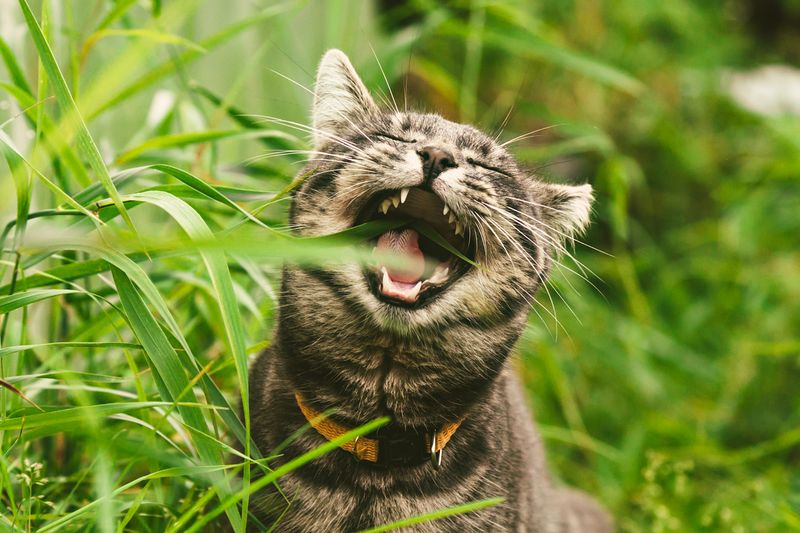
Cats are meticulous groomers, often ingesting a lot of fur in the process. This fur can accumulate in their digestive tract, forming hairballs. The consumption of grass acts as a natural laxative, helping them expel these hairballs. Grass contains dietary fiber, which aids in digestion and helps move things along smoothly.
Watching your cat nibble on grass might seem strange, but it’s a practical solution to a common feline problem. Next time you see them enjoying the greenery, know that they’re likely ensuring their digestive health is in top shape. It’s their way of maintaining balance.
Nutritional Supplement
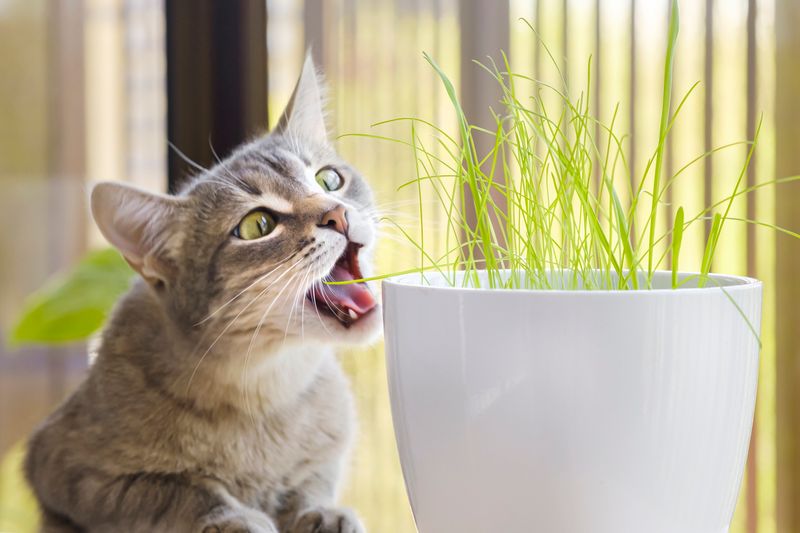
Cats are carnivorous by nature, but grass provides certain nutrients that they might not get from their regular diet. Grass contains folic acid, a vital nutrient that aids in the production of hemoglobin, which is essential for oxygen transport in the blood.
Though their diet is primarily meat-based, a bit of grass now and then can be a nutritional booster. This occasional munching might just be an instinctual behavior passed down from their wild ancestors who had diverse diets. It’s not just a quirky tendency; it’s a small but beneficial dietary supplement for them.
Inducing Vomiting
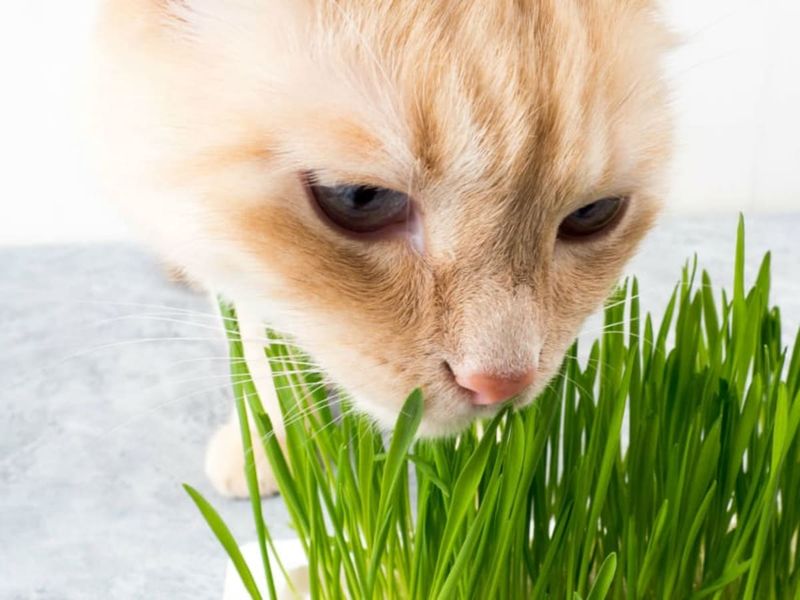
At times, cats eat grass to induce vomiting. This might sound unpleasant, but it’s a method for them to clear out indigestible material from their stomachs.
When cats consume something that doesn’t sit well with them, the fibrous texture of grass can help trigger vomiting, relieving their discomfort. It’s nature’s way of providing them with a tool for self-care. While it might worry cat owners initially, understanding this behavior reveals the wisdom in feline instincts. It serves as a protective mechanism, ensuring their health isn’t compromised by something they’ve ingested.
Behavioral Curiosity
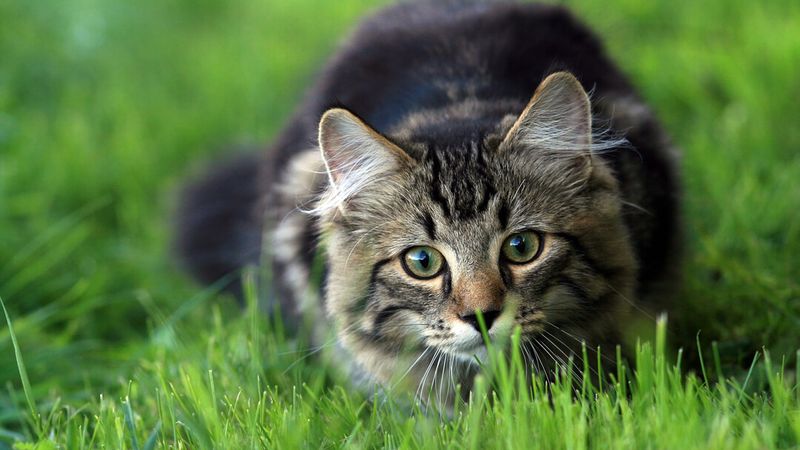
Cats are naturally inquisitive creatures. Grass offers a new texture and taste that satisfies their curiosity. Kittens, in particular, are prone to exploring the world with their mouths.
The act of eating grass can be an engaging activity, offering mental stimulation. This behavior isn’t solely about nutrition or health; it’s a way for cats to interact with their environment. It offers them an opportunity to satisfy their natural curiosity, exploring different sensations. So, when you see a cat playing with and eating grass, know it’s part of their innate desire to understand the world around them.
Hydration Aid
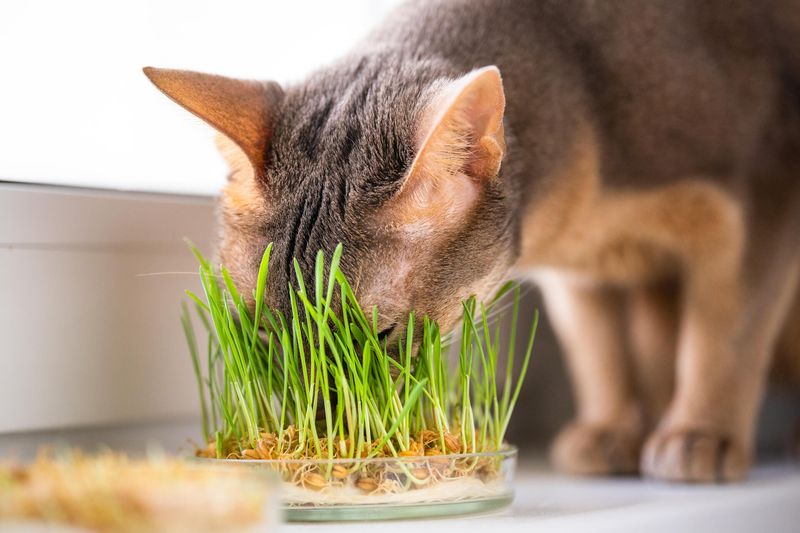
In some cases, cats munch on grass to quench their thirst. Grass blades often hold tiny droplets of water, especially in the early morning or after rain.
For outdoor cats, this can be a handy source of hydration when water isn’t readily available. It serves as an unconventional drinking method, helping them stay hydrated without needing a bowl. This behavior highlights their adaptability, showcasing how they utilize available resources to meet their needs. Next time it rains, notice if your cat heads for the grass—they might just be taking a refreshing drink from nature’s cup.
Stress Relief
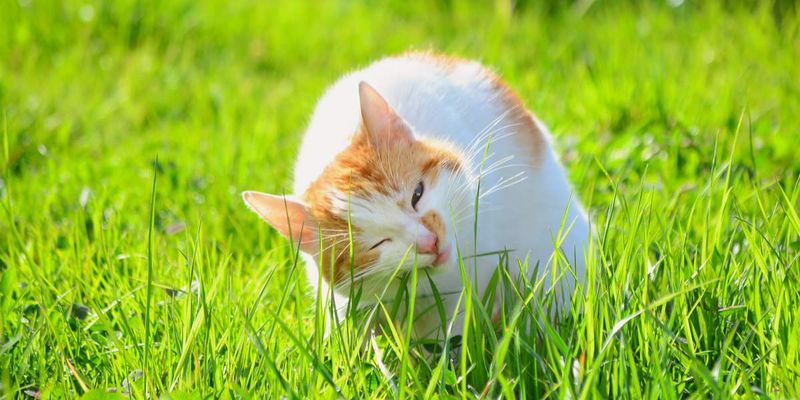
The simple act of chewing can be soothing for cats, much like how humans find comfort in repetitive actions. Eating grass can provide them with a sense of calm.
For some cats, this behavior might be akin to a stress-relief activity. The texture and taste of grass can have a calming effect, helping to reduce anxiety. This natural method of easing stress is a testament to their resourcefulness. So, the next time your cat seems a little tense and heads for the garden, they might be seeking their own form of relaxation therapy in the greenery.
Dental Care
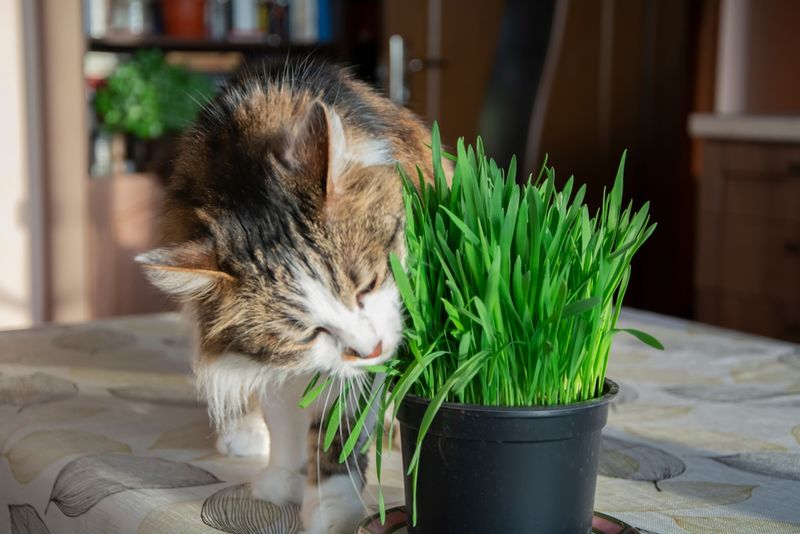
Chewing on grass can serve an unexpected purpose: dental care. As cats chew, the fibrous nature of grass acts like a natural toothbrush, helping to clean their teeth and gums.
This action might aid in reducing plaque buildup and maintaining oral health. While it’s not a substitute for regular dental care, it’s an additional benefit. Cats are known for their grooming habits, and this might be another facet of their self-care routine. It’s a delightful revelation that their penchant for grass has more to it than meets the eye, contributing to their overall well-being.
Instinctual Behavior
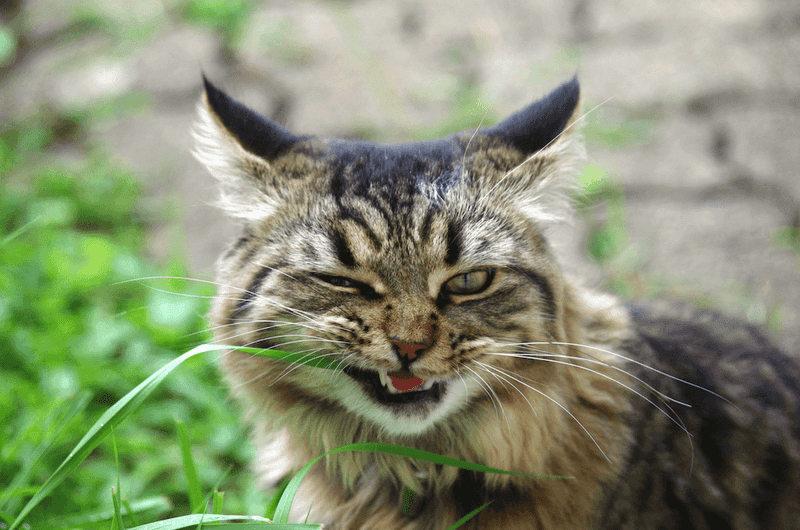
Eating grass is a behavior that stems from a cat’s instinctual past. Wild ancestors of domestic cats often consumed grass as part of their natural diet. This behavior has been passed down through generations.
The act doesn’t always have a clear purpose but remains embedded in their instincts. It’s a reminder of their connection to the wild, retaining elements of their ancestral lifestyle. While domestic cats have evolved, some behaviors remain unchanged. Recognizing these instinctual actions adds depth to understanding our feline friends and their multifaceted nature.
Taste Preference
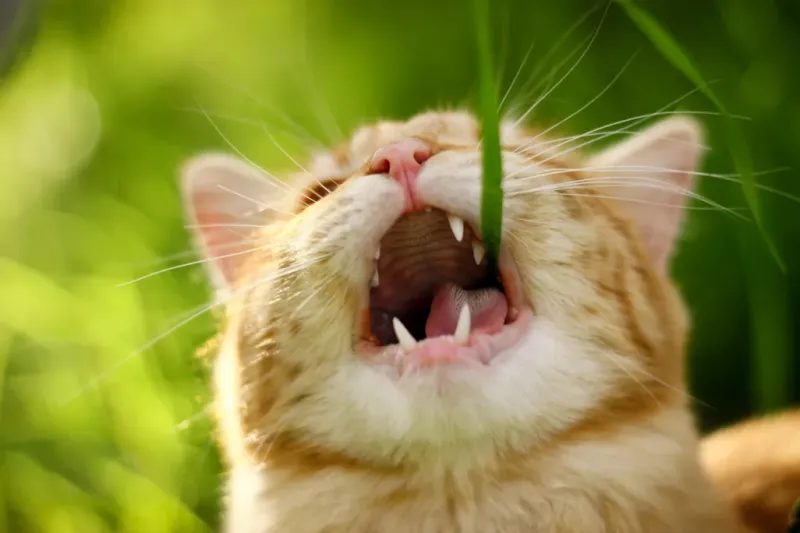
Believe it or not, some cats simply enjoy the taste of grass. The flavor might appeal to their palate, offering a change from their regular meals.
It’s not always about the benefits or needs; sometimes, it’s just about the joy of savoring something different. The simple pleasure derived from eating grass adds another layer to their complex eating habits. This quirky taste preference showcases the individuality found within each cat, reflecting their unique personalities. It’s a fun aspect of their behavior, celebrating the diverse tastes of our feline companions.
Evolutionary Adaptation
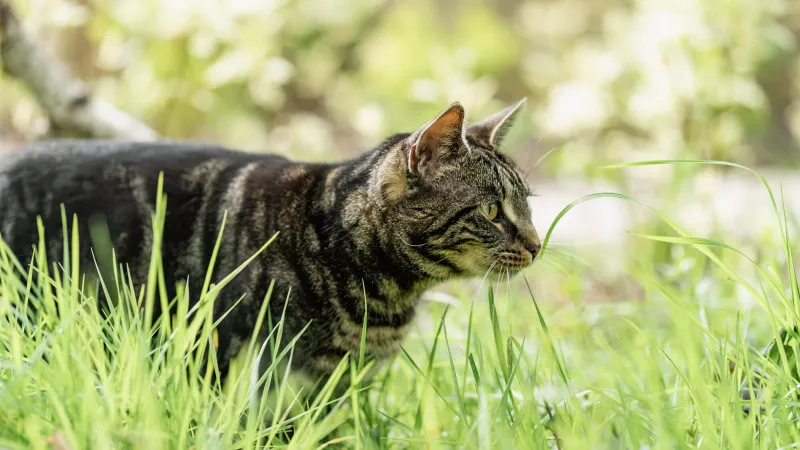
Over time, cats have adapted to their surroundings, and eating grass is part of this evolutionary journey. In the wild, grass consumption could have been a way to ingest trace elements or aid digestion.
While domestic cats have a controlled diet, the behavior persists, showcasing their adaptability. It’s a nod to their history, reflecting how nature shapes habits. Understanding this evolutionary aspect provides a glimpse into their past, illustrating how some habits are deeply ingrained and continue to surface, even in today’s modern pet cats.

